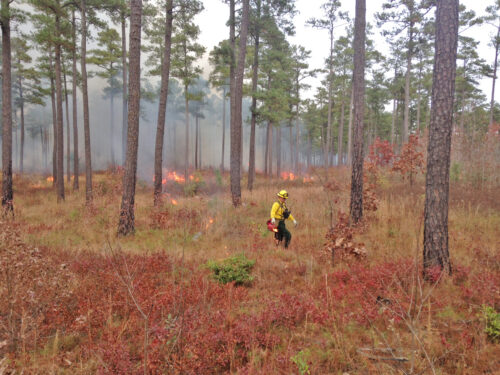 Fire can be both a good and bad force in the forest. Under controlled conditions, the benefits of fire in forest and ecosystem management are great. Under uncontrolled conditions, fires can be disastrous – these are called wildfires.
Fire can be both a good and bad force in the forest. Under controlled conditions, the benefits of fire in forest and ecosystem management are great. Under uncontrolled conditions, fires can be disastrous – these are called wildfires.
Wildfires often develop when weather and environmental conditions are such that the fire cannot be controlled. Such fires spread rapidly, threaten lives, homes and communities, and damage our forestland and timber resource. Virginia Department of Forestry (VDOF) sits ready to respond with wildfire suppression resources to control such wildfires as quickly as possible.
Fires play a vital role in keeping certain types of forests, grasslands, and other landscapes healthy. Most forest ecosystems evolved to tolerate semi-regular fires of lower intensity and flourish in their aftermath; however, societal norms, which often viewed all fire as bad, led a push during much of the 20th century to prevent fire at all costs. However, without fires, forest health and diversity has suffered. In an effort to reverse this trend, land managers have emphasized the increased use of prescribed fire, for the multiple benefits “good fire” brings to the forest.
In recent years, land managers have embraced prescribed fire – setting intentional, controlled fires in a specific area with a specific goal – as a necessary and useful tool to prevent dangerous wildfires and manage certain landscapes for long-term ecological health.
Learn more about fire that is beneficial to the environment.
Read more about Prescribed Burning.
